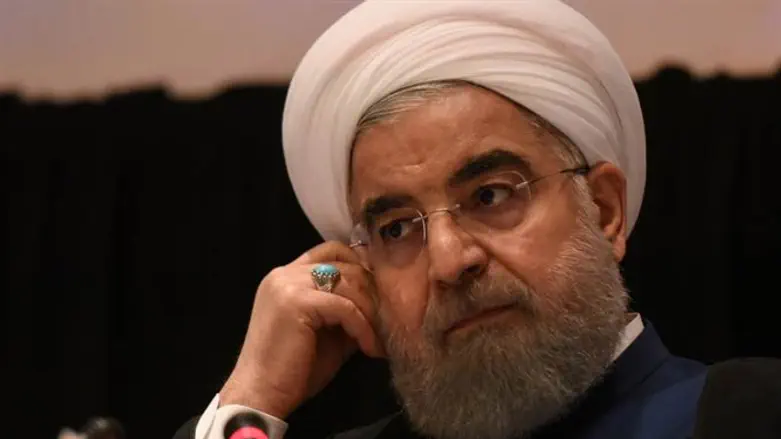
Iran's President Hassan Rouhani on Wednesday called for greater "competition" in an election for his successor next month, after several hopefuls were barred from running against ultraconservative candidates, AFP reports.
Rouhani said he had asked the Islamic Republic's supreme leader Ayatollah Ali Khamenei to intervene and warned that "the heart of elections is competition. If you take that away it becomes a corpse."
Iran's ultraconservative judiciary chief Ebrahim Raisi is now widely seen as the frontrunner to replace Rouhani, after the powerful Guardian Council, which is in charge of vetting presidential candidates, prevented several prominent figures from standing for election.
Seven candidates, five of them ultraconservatives, were approved for the June 18 election. The Guardian Council disqualified several well-known figures, including long-time parliament speaker Ali Larijani, an ally of Rouhani who had been seen as the main challenger to Raisi.
Rouhani, who spoke at a televised cabinet meeting, also warned of the risk of low voter turnout and said the system's "continued legitimacy" was at stake.
The Guardian Council, the unelected body responsible for overseeing elections, this time selected the seven candidates from a field of about 600 hopefuls.
Rouhani said that, in his request for a revision of the list, "I sent a letter to the Supreme Leader yesterday on what I had in mind and if he can help with this".
He added that Khamenei has "seldom intervened" during previous elections, but "there have been times when he added someone back in with an order".
Rouhani, who was first elected in 2013 and reelected four years later, cannot run a third time as per Iranian law.
Despite being touted as a “moderate” reformist, Iran has set new records under Rouhani’s presidency in the number of executions, many for political or religious "crimes".
He has also done little in the way of freeing reformist political leaders who were jailed after protesting the 2009 election and in stopping the limitations on freedom of speech in Iran, despite having openly criticized it.
In addition, he has in the past called Israel “illegitimate” and lamented that the crisis in Syria has made it difficult for Iran to focus on harming Israel.
